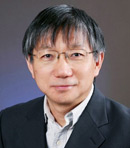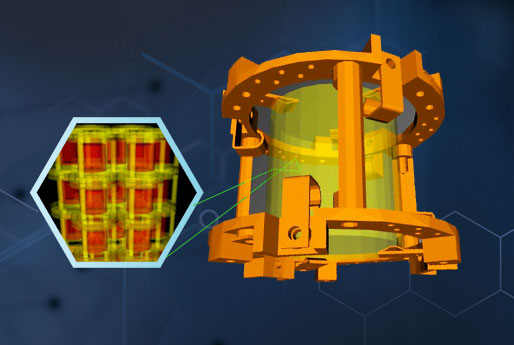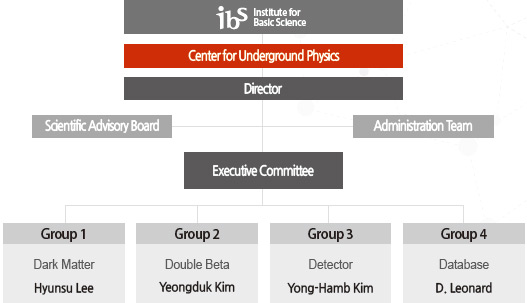주메뉴
- About IBS 연구원소개
-
Research Centers
연구단소개
- Research Outcomes
- Mathematics
- Physics
- Center for Theoretical Physics of the Universe(Particle Theory and Cosmology Group)
- Center for Theoretical Physics of the Universe(Cosmology, Gravity and Astroparticle Physics Group)
- Center for Exotic Nuclear Studies
- Center for Artificial Low Dimensional Electronic Systems
- Center for Underground Physics
- Center for Axion and Precision Physics Research
- Center for Theoretical Physics of Complex Systems
- Center for Quantum Nanoscience
- Center for Van der Waals Quantum Solids
- Chemistry
- Life Sciences
- Earth Science
- Interdisciplinary
- Institutes
- Korea Virus Research Institute
- News Center 뉴스 센터
- Career 인재초빙
- Living in Korea IBS School-UST
- IBS School 윤리경영


주메뉴
- About IBS
-
Research Centers
- Research Outcomes
- Mathematics
- Physics
- Center for Theoretical Physics of the Universe(Particle Theory and Cosmology Group)
- Center for Theoretical Physics of the Universe(Cosmology, Gravity and Astroparticle Physics Group)
- Center for Exotic Nuclear Studies
- Center for Artificial Low Dimensional Electronic Systems
- Center for Underground Physics
- Center for Axion and Precision Physics Research
- Center for Theoretical Physics of Complex Systems
- Center for Quantum Nanoscience
- Center for Van der Waals Quantum Solids
- Chemistry
- Life Sciences
- Earth Science
- Interdisciplinary
- Institutes
- Korea Virus Research Institute
- News Center
- Career
- Living in Korea
- IBS School
Research Centers
- Research Outcomes
- Mathematics
- Physics
- Center for Theoretical Physics of the Universe(Particle Theory and Cosmology Group)
- Center for Theoretical Physics of the Universe(Cosmology, Gravity and Astroparticle Physics Group)
- Center for Exotic Nuclear Studies
- Center for Artificial Low Dimensional Electronic Systems
- Center for Underground Physics
- Center for Axion and Precision Physics Research
- Center for Theoretical Physics of Complex Systems
- Center for Quantum Nanoscience
- Center for Van der Waals Quantum Solids
- Chemistry
- Life Sciences
- Earth Science
- Interdisciplinary
- Institutes
- Korea Virus Research Institute
DirectorKIM Yeongduk
Searching for dark matter WIMP to explain the origin of the universe
Tel. +82-42-878-8510
Fax +82-42-878-8509
IBS Center for Underground Physics
34126, IBS, Experiment building, 1st floor, 55, Expo-ro, Yuseong-gu, Daejeon, Korea
Director

Director KIM Yeongduk
Dr. Kim graduated from Nuclear Engineering department of Seoul National University in 1985 and earned his Ph.D. in Physics from Michigan State University in 1991.
He later became professor at the Physics Department of Sejong University. He also was a visiting scholar at Columbia University and Lawrence Livermore National Laboratory (LLNL). After returning from the LLNL, he took the position at the Center which was established in July 2013.
Introduction

Searching for Dark Matter to understand the origin and structure of the universe
- - Conducting nuclear and particle physics experiments
- - Searching for Weakly Interacting Massive Particles (WIMPs) as dark matter candidates
- - Searching for neutrinoless double beta decay and sterile neutrinos
- - Developing low-temperature detection technologies by utilizing low-temperature sensors and various crystals
Main research activities
We now know that neutrinos are massive but we have yet to determine their absolute masses and nature. Discovering these important unknowns can be related to leptogenesis theories that make attempts to explain particle-antiparticle asymmetry in the universe. Neutrinoless double beta decay experiment is the most practical approach for determining the absolute masses and understanding the nature of neutrinos. At the Center for Underground Physics (CUP) at the IBS, we will perform several phases of AMoRE (Advanced Mo-based Rare process Experiment) experiments that probe the neutrino mass down to 0.03 eV.
Advancing our knowledge of dark matter is necessary in order to understand the origin and structure of the universe, because the universe consists of 26.8% dark matter and 68.3% dark energy. We are running experiments to search directly for WIMPs (Weakly Interacting Massive Particles), which offer the most plausible explanation as to the nature of dark matter. We will develop new detection techniques to search for dark matter, which would provide more sensitive results than currently running experiments.
We will install detectors with ultra-low noise at a depth of approximately 700 meters at our underground laboratory in Yangyang in Korea to reduce background cosmic rays to search for extremely rare events such as neutrinoless double beta decays, dark matter, etc. Since we expect to see only a handful of signal events per year, the success of the experiments highly relies on reducing background interference. We will achieve our goal by growing ultra-low background crystals and by developing low-temperature sensors that have excellent energy resolution and the power to distinguish the signals from huge background events.
Organization

Main research results
- An experiment to search for dark-matter interactions using sodium iodide detectors
(Nature, 2018) - Novel measurement method of heat and light detection for neutrinoless double beta decay
(Astropart. Phys., 2017) - Sterile Neutrino Search at the NEOS Experiment
(Phys. Rev. Lett., 2017) - Detecting Dark Photon with Reactor Neutrino Experiments
(Phys. Rev. Lett., 2017) - Search for solar axions with CsI(Tl) crystal detectors
(JHEP, 2016)
Personnel
| Total | 71 |
|---|---|
| Gender | 51(Male), 20(Female) |
| Korean/ International | 63(Korean), 8(International) |
Degree
Position
As of January. 2020
- Content Manager
- Center for Underground Physics : Shin, Ji Eun 042-878-8501
- Last Update 2022-01-27 16:19












